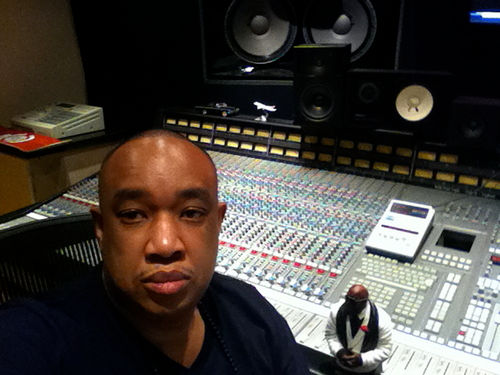Vocal Effects
- Brad Chapman
- Apr 25, 2016
- 4 min read


Most of the vocal effects, i.e.,Space designer, Vocoder, Exciter, Auto-Tune, Melodyne, Stereo Delay… and hundreds more are used by the mixer after the vocal recording.
You Must Bring the Emotion:
Rick St. Hilaire will tell you (a very well-known producer and engineer for Busta Rhymes, Whitney Houston, Michael Jackson…) there's no effect or what they call a patch for lack of feel and emotion from the singer or the musicians.
You must provide it yourself. So, when you go in to the studio, you should be prepared to be 100% emotional; that is the key. Now, if they feel that you are not good enough to be 100% on pitch and emotional, they'll keep focusing you on the emotions. They’ll fix your vocal pitch/rhythm with Melodyne or Auto-Tune.
They also know that effects don’t cover up problems in the singing/ musicians performance. Effects don't help if there's a lack of feel/emotion either.
Be 100% Prepared:
Be a hundred percent prepared to be emotional in the studio or on stage. To be prepared, you nail down the words and the melodies, and you know the story inside and out. That’s all got to be done before you go to the studio/stage.
The next thing is to wear headphones or in ear monitors/stage monitors in order to hear yourself.
If you feel that a certain effect will help you express your emotions, you can have that effect outsourced into your headphones/monitors; so, you don’t have to worry about what the producers/engineer/audience are hearing from the studio or stage speakers.
Great Producers:
Some of the great producers/engineers will listen to your monitors to check what you’re hearing … and because you love the mix in your headphones/monitors from there you will give your best performance. The effects are helping you feel the emotional ambiance of the song.
Performance Destroyed::
Your headphones/monitors can destroy your performance if you feel uncomfortable. Let's say you can’t hear your voice well over the instruments and you're afraid to talk to the engineer about it.
You’ll go ahead and try to sing without being able to hear yourself and the producer/engineer will be telling you “oh my God you're so off pitch. I've heard you sing before and you don’t sing like this. If the producer/engineer has enough experience, he'll probably talk to you about your monitor mix.
The Studio:
When you go into the studio (especially these days) you probably will be paying for the sessions yourself. It’s perfectly all right for you to say to the engineer, “I don't want a lot of compression/limiting on my voice while I'm recording”.
The reason that this is better for you is that if they over compress/limit your voice, and then you go for a loud dynamic part of the song, where you are accustomed to getting much louder (this depends on how you sing); the compressor/limiter will compress the voice loudness peaks down and you won’t hear them (as the singer).
Subconscious:
As the singer, you don't hear the loud dynamic and so, instinctively your body will push harder to hear what you’re used to hearing. Your subconscious will make the voice push louder to compensate (trying to hear what is being compressed/limited). This results in straining and burning out your voice during the recording/live performance.
So, be sure to talk to your engineer and producer about this before you start recording, or going on stage.
Sit down with them and tell them that you don't want compression/limiting in your head phones or stage monitor. If you need to learn about the effects of compression, Melodyne, or Auto-Tune; talk to the engineer about it. Even if you don't know a lot, they do and you can figure out what can work best for you when you’re listening via headphones/monitors.
Your Responsibility:
However, this is your responsibility. It’s up to you to make yourself sound the best you can! You must know what you're doing before you go into a studio. That's what this blog is about (and many other of my blogs).
There is a story about Patty Labelle from Khaliq Glover (a very well-known producer/engineer (for artists: Prince, Michael Jackson, …; song: We Are the World …) and has been in the music industry for many years.
He talked about Patty coming into his studio. While he was doing his job to make her sound good, he noticed that she sings very loud (because of her black gospel background); so, he immediately put compression on her voice. Well, for whatever reason; she knew what he was doing and she told him to turn the compression off.
School of Hard Knocks:
Patty Labelle is an example of somebody who knows what's going on in the studio/stage and she's probably learned that over time thru the school of hard knocks.
When you follow the information in this blog, you won't have to go through the same school. You can perform and do it right the first time. You’ll have a much, much better experience and success with your listeners.
Brad Chapman Vocal Pre-Producer www.bradchapmanvocals.com
































Comentarios